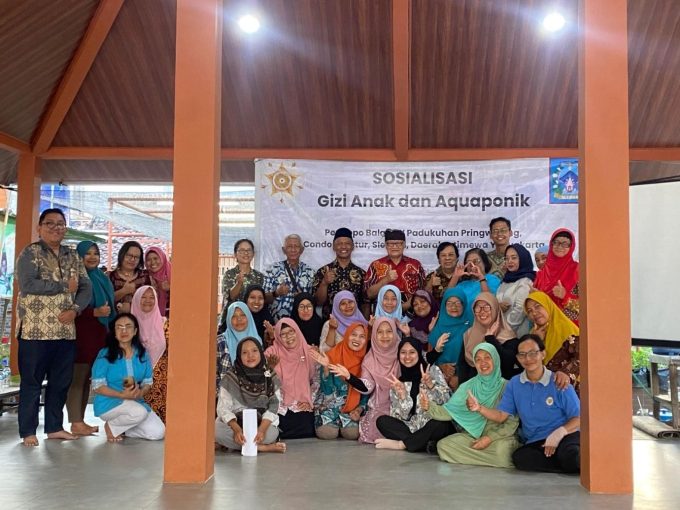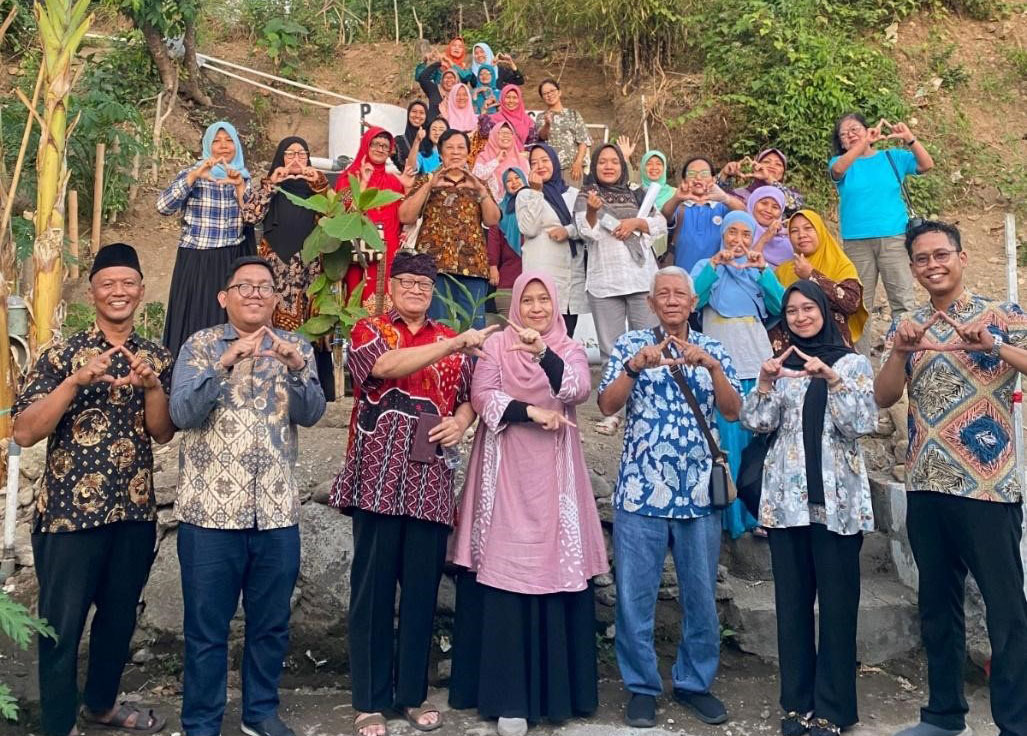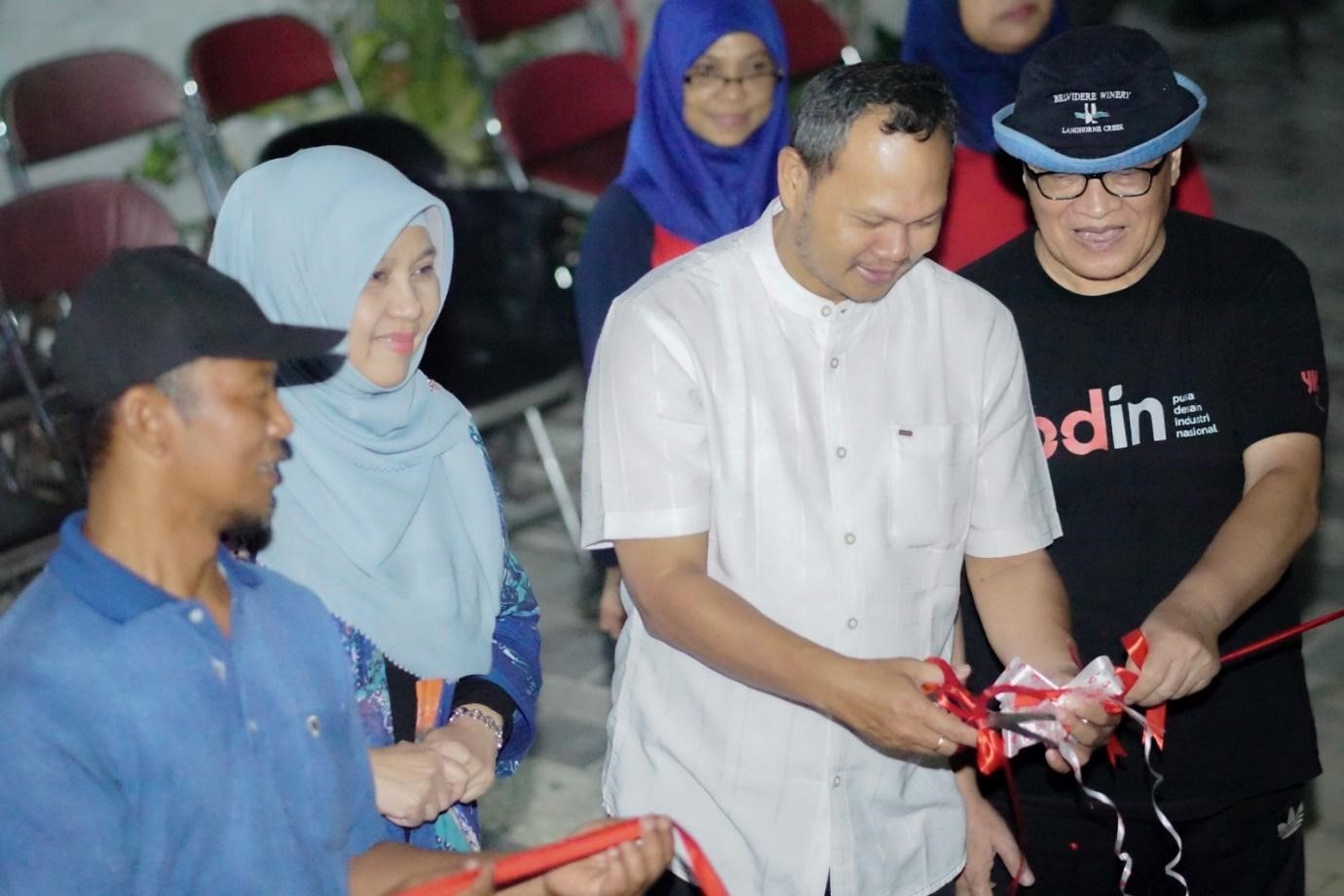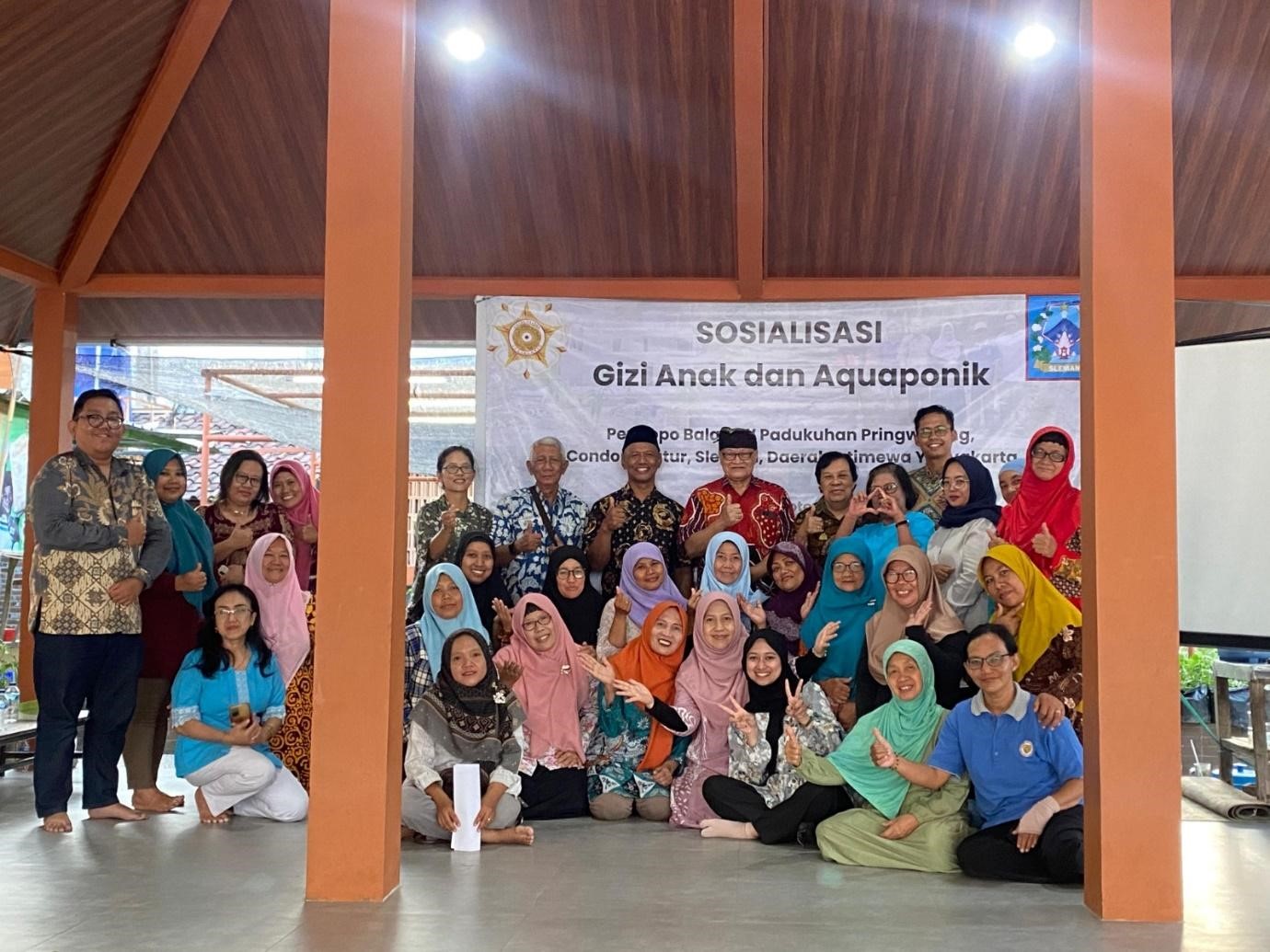
The Islamic Economics and Halal Industry Study Program (PIIH) at the Graduate School (SPs) of UGM provides assistance in catfish cultivation and growing water spinach using an aquaponics system in the Pringwulung area, located in the Condongcatur village, Depok, Sleman, Yogyakarta, during a community service event on September 18th 2024.
This community service activity has two main objectives. First, part of the harvest will be used to improve the nutrition of toddlers and children at the local Posyandu (integrated health post for toddler). Second, some of the harvest can be sold to local residents, with the proceeds used to purchase seeds and feed for the next planting and catfish farming seasons.
The main issue in this hamlet, especially concerning toddler nutrition, has not been optimally resolved. The active Posyandu, which serves 182 toddlers, faces challenges in maintaining a sufficient supply of nutritious food, primarily because funding sources come from “jimpitan,” a form of voluntary contributions with uncertain amounts.
Aquaponics is a combination of aquaculture (fish farming) and hydroponics (soil-less plant cultivation). This system allows water enriched by fish waste to be used as nutrients for plants, while the plants help filter the water that is then returned to the fish pond. Through this approach, the community can simultaneously produce protein-rich catfish and vegetables like water spinach, at relatively low costs and with minimal environmental impact.
The initial phase of this program involves planning and constructing aquaponics infrastructure on vacant land next to the Darut Taqwa Mosque in Pringwulung Village, Condongcatur, which serves as the community activity center. Water from ablution at the mosque and an unused river stream is recycled as part of the irrigation system, treated to meet the water needs for both fish and plants. Thus, this system is not only environmentally friendly but also maximally utilizes existing resources.
This catfish and family vegetable cultivation system (Paradise) employs appropriate technology by utilizing recycled ablution water or unused river water to support the aquaponics system, thereby significantly contributing to the improvement of toddler and family nutrition in Pringwulung Village.
The program not only focuses on nutritional improvement but also on community empowerment. By directly involving the Women of PKK (Family Welfare Empowerment) and Posyandu managers, this program builds the community’s capacity in agricultural and fishery skills. The “learning by doing” approach allows the community to be more independent in managing their resources, reducing their reliance on external assistance.
The faculty members accompanying the students consist of Dr. Reni Rosari, M.B.A, Prof. Dr. Sudjadi, M.S., Apt., Dr. John Suprihanto, MIM, along with two students, Ragil Satria Wicaksana and Zielhapes Fuady.
This activity aligns with the implementation of the SDGs: Goal 1 (No Poverty), Goal 2 (Zero Hunger), Goal 3 (Good Health and Well-Being), Goal 7 (Affordable and Clean Energy), and Goal 17 (Partnerships to Achieve the Goals).
Author: Ragil Satria Wicaksana
Editor: Arni Wistriatun



